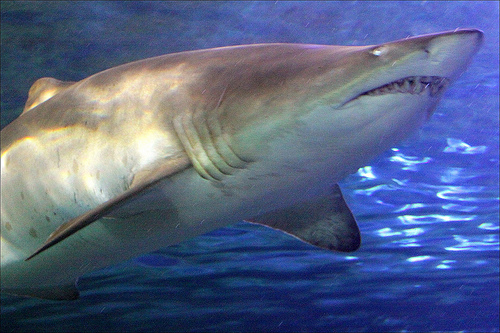Fake shark fin soup could be toxic

I really want to title this article “Sharks bite back,” but aside from being obnoxiously flippant, people are getting sick in China after eating food in good faith, and that’s just not fair play. We animal activists shouldn’t gloat over the fact that China’s bizarre and dangerous food system has found a way to create shark fins for shark fin soup, and that some of the fake shark fins may be toxic.
The allure of shark fin soup (so I am told) is the texture of the strings of cartilage that form the fin. The cartilage turns into gelatinized threads when it has been prepared for soup, which creates a bizarre and unique mouth feel (similar to the attraction to bird’s nest soup, which is also inhumane, albeit not nearly as bad as the practice of “finning”).
Some enterprising and unethical Chinese food suppliers have found a way to make fake shark fins. But instead of marketing them as faux shark fins for cruelty-free shark fin soup, they are being sold on the black market and passed off as the real thing. Fake shark fins cost only pennies on the dollar, and given the high price of shark fin soup (about $100 per bowl), the profit margin for an unscrupulous restaurant owner is clear.
These fake shark fins are made with mung bean starch, gelatin, sodium and “various chemicals.” It’s the “various chemicals” that are the problem, as many of them turn out to be poisonous. And the problem is as widespread as all the other Chinese fake food scandals revealed so far: one investigative team estimated that up to 40 percent of all shark fins in Chinese shark fin soup are fake.
Add “shark fin soup” to the list of things you’ll want to avoid eating in China. It’s a long list that includes eggs, soy sauce, baby formula, and milk, among other scandals.
Image courtesy Flickr/loop_oh

0 comments